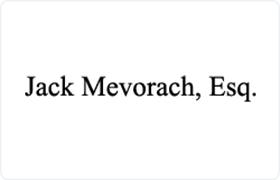New York Real Estate Lawyer, New York, page 8
Sponsored Law Firm
-
 x
x

Click For More Info:
-
Jack Mevorach, Esq.
132 Spruce St Cedarhurst, NY 11516» view mapLawsuit & Dispute, Litigation, Business, Contract, Real Estate New York's Strategic Lawyer
Accurate representation for your legal situation.
800-896-7621
Seth Liebenstein
Condominiums, Commercial Real Estate, Commercial Leasing, Landlord-Tenant
Status: In Good Standing
Allan Gosdin
Condominiums, Commercial Real Estate, Commercial Leasing, Banking & Finance
Status: In Good Standing
Alan Michael Shectman
Wireless, Commercial Leasing, Construction Contracts, Construction Liens
Status: In Good Standing
FREE CONSULTATION
CONTACTFREE CONSULTATION
CONTACTDavid I. Keusch
Banking & Finance, Commercial Leasing, Commercial Real Estate, Foreclosure
Status: In Good Standing
D.B. David Shin
Business Organization, Commercial Leasing, Commercial Real Estate, Foreclosure
Status: In Good Standing
Barbara A. Sheehan
Construction, Pension & Benefits, Directors & Officers, Corporate
Status: In Good Standing
David A. Glazer
Construction, Transportation & Shipping, Workers' Compensation, Corporate
Status: In Good Standing
FREE CONSULTATION
CONTACT Jack Mevorach Cedarhurst, NY
Jack Mevorach Cedarhurst, NY Practice AreasExpertise
Practice AreasExpertise
